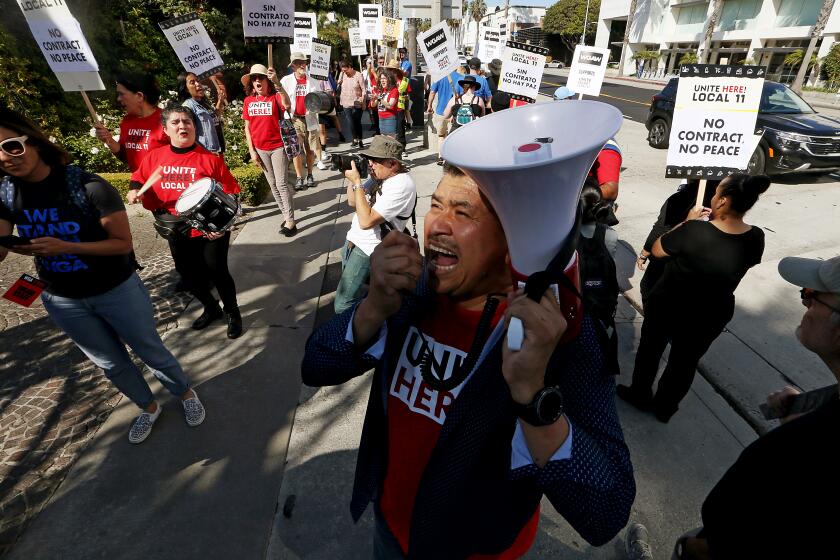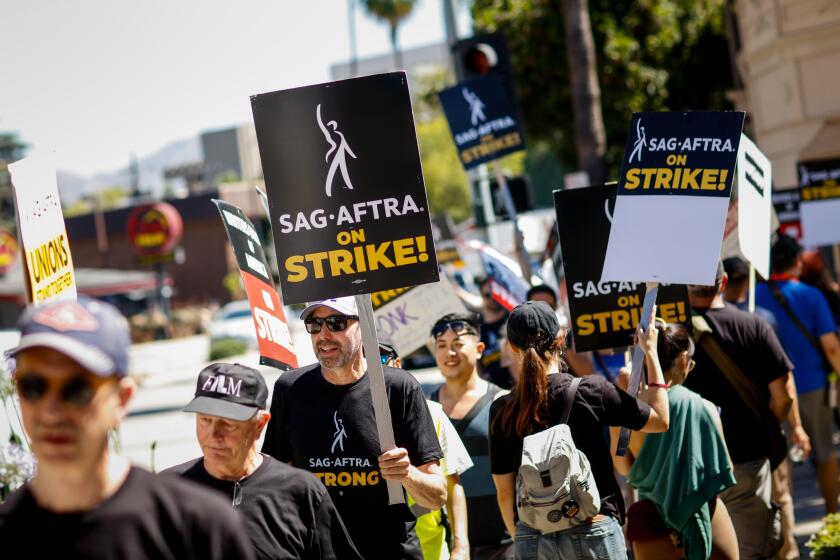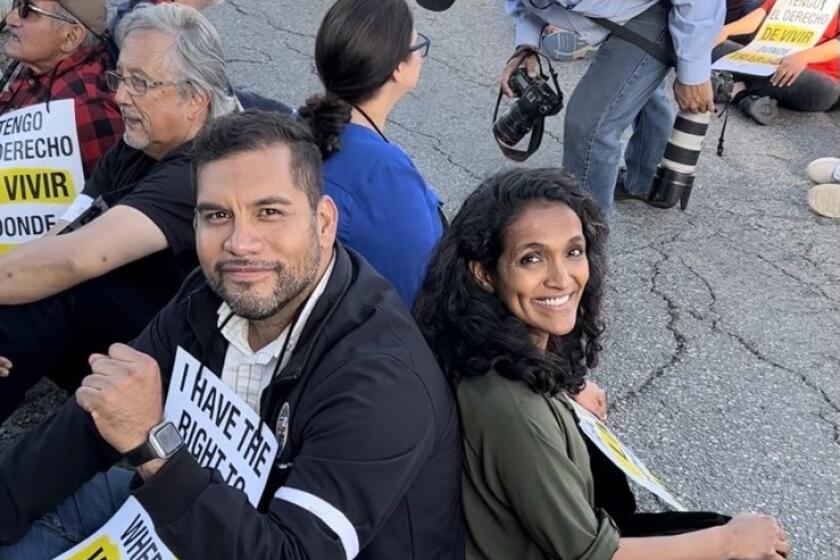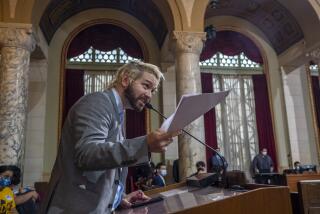Elected officials can stand with striking workers — no matter what the L.A. city attorney says
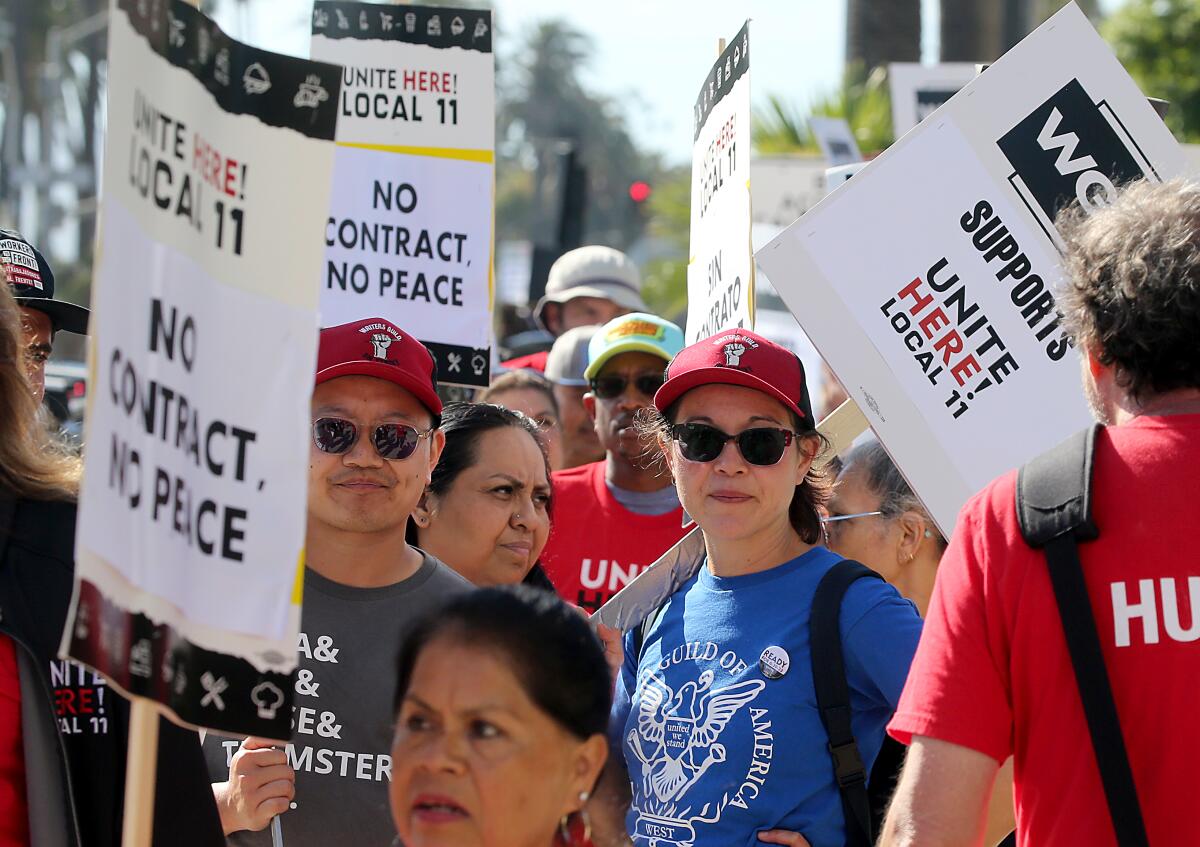
- Share via
Elected officials in Los Angeles — and everywhere — have the 1st Amendment right to express their views about labor disputes, including showing solidarity with the unions and joining their picket lines. Contrary to the advice given by the Los Angeles City Attorney’s office, there is nothing in federal law that keeps city officials from publicizing their views.
Yet City Atty. Hydee Feldstein Soto’s office warned elected officials that expressing support for striking workers in the big labor disputes in L.A. could raise concerns about “bias and impartiality of the officials who participate in City decision-making processes” and possibly expose the city to liability, according to a memo reviewed by Times reporters. This position, however, has no basis in the law.
The city attorney’s office misinterprets a 1986 U.S. Supreme Court decision, Golden State Transit vs. City of Los Angeles. In that case, the city council refused to renew the city’s franchise agreement with a taxicab company because the company was involved in a labor dispute with its drivers. The court ruled that the National Labor Relations Act prohibited the city from putting coercive pressure on the parties to settle the strike. In a subsequent decision, the court found the city was liable for damages sought by the taxicab company.
In the middle of L.A.’s hot labor summer, City Atty. Hydee Feldstein Soto has advised city officials to refrain from speaking out at strikes or union protests.
But the Golden State Transit cases do not remotely support the city attorney’s conclusion. Those cases involved the city as an entity pressuring a private company to settle a strike or lose its city contract. It has nothing to do with individual elected officials expressing their views, including their support for picketing workers. The speech of individual council members is not the same as the city threatening to terminate a contract and trying to force an end to a strike. Those cases involved actions by the city, not the expression of a point of view by an elected official.
In its memo, the city attorney’s office also expressed concern that if council members show up on picket lines or rally with demonstrators, they might have to recuse themselves from voting on a related issue in the future. “Participation in such activities by multiple members may affect council’s ability to meet quorum on matters involving the union or the employers and could expose the city to liability,” the memo said.
As SAG-AFTRA members join writers on picket lines, the fallout will disrupt Hollywood film and TV productions worldwide. ‘There’s going to be blood in the water,’ said one analyst. ‘This will not end well.’
This is just wrong. Elected city officials are allowed to voice their views, including on matters that will ultimately come before them for a vote. They are not like judges who are expected to refrain from expressing public positions on issues.
There are conflict of interest rules for city council members, but none of them indicate that there is any problem with elected officials taking positions. Nor could that be objectionable. Elected officials are expected to express their positions — both in running for office and while serving — on the matters that will come before them.
Los Angeles City Councilmembers Hugo Soto-Martínez and Nithya Raman and Assemblymember Wendy Carrillo were arrested Thursday at a hotel workers protest.
The city attorney’s office’s memo appears to support a stunning change in the conduct of elected officials, many of whom have long have supported striking workers. No one has ever suggested that such behavior violates federal law or is inappropriate. In fact, it is at the very heart of 1st Amendment freedoms.
Of course, the city attorney’s office has the important duty to protect the city from legal risks and conduct that could lead to liability. But in this case, it misread the law and overreacted. If city council members want to express their views — either in support for striking workers or in opposition — that is their constitutional right and part of the normal political process.
Erwin Chemerinsky is a contributing writer to Opinion and the dean of the UC Berkeley School of Law. His latest book is “Worse Than Nothing: The Dangerous Fallacy of Originalism.”
More to Read
A cure for the common opinion
Get thought-provoking perspectives with our weekly newsletter.
You may occasionally receive promotional content from the Los Angeles Times.
